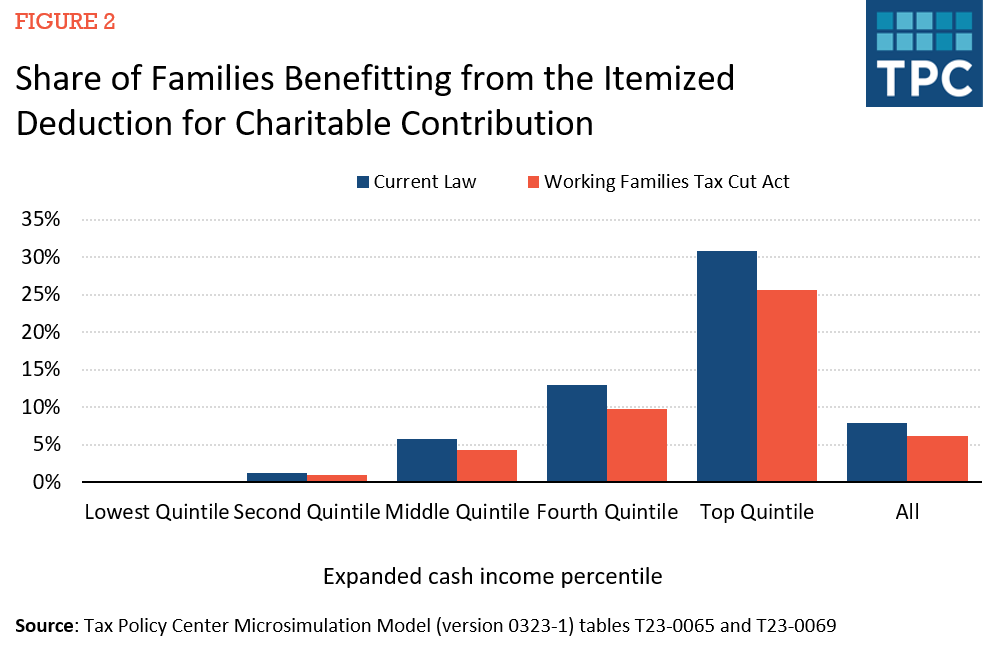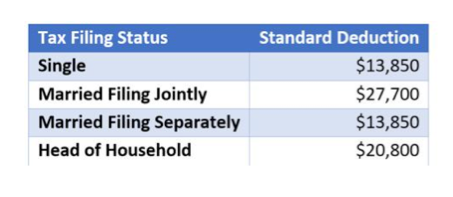The Foreign Earned Income Exclusion Explained: An Overview to Enhancing Your Conventional Reduction
The Foreign Earned Income Exclusion (FEIE) is a necessary tax obligation provision for U.S. residents and resident aliens living abroad. It permits eligible expatriates to omit a substantial section of their foreign-earned income from federal taxes. Understanding the nuances of FEIE can cause considerable tax obligation financial savings. Many individuals overlook vital details that might impact their eligibility and benefits. Exploring these aspects may expose chances for improved tax obligation outcomes.
Recognizing the Foreign Earned Income Exclusion
Numerous expatriates look for possibilities abroad, understanding the Foreign Earned Earnings Exclusion (FEIE) is crucial for handling their tax obligation responsibilities. This arrangement enables U.S. people and resident aliens living overseas to omit a certain amount of their earned income from government taxes. The FEIE was established to minimize the tax obligation problem on individuals that live outside the United States, recognizing the special financial challenges they may encounter.

Qualification Demands for FEIE

Just how to Claim the FEIE
To efficiently assert the Foreign Earned Income Exclusion (FEIE), taxpayers should first confirm their eligibility based on specific criteria - FEIE Standard Deduction. The process entails numerous steps, including submitting the suitable types and giving necessary documents. Comprehending these treatments and requirements is crucial for maximizing tax advantages while living abroad
Qualification Requirements
Qualification for the Foreign Earned Earnings Exclusion (FEIE) depends upon conference details standards set by the internal revenue service. To qualify, individuals must be U.S. residents or resident aliens that gain revenue while working abroad. They need to establish an international tax obligation home, which means their main location of service is outside the USA. Additionally, applicants need to fulfill either the Authentic Residence Examination or the Physical Existence Examination. The Authentic Home Examination requires that a taxpayer resides in a foreign country for an entire tax obligation year, while the Physical Existence Examination demands spending at the very least 330 complete days in an international nation throughout a 12-month duration. Satisfying these demands is crucial for declaring the FEIE.
Filing Refine Actions
Exactly how can one properly browse the procedure of asserting the Foreign Earned Income Exclusion (FEIE)? Initially, individuals need to identify their qualification based on the physical existence test or the authentic house examination. As soon as confirmed, they should finish internal revenue service Type 2555, which details foreign earnings and residency. This form must be connected to their yearly tax obligation return, commonly Type 1040. It is necessary to accurately report all international made earnings and assurance compliance with the internal revenue service guidelines. In addition, taxpayers must preserve proper paperwork, such as foreign tax obligation returns and proof of residency. By adhering to these steps, individuals can efficiently claim the FEIE and potentially minimize their taxable income significantly, enhancing their total monetary setting.
Computing Your Foreign Earned Income Exemption
While many expatriates look for to maximize their monetary benefits abroad, comprehending the estimation of the Foreign Earned Income Exclusion is vital more info here for exact tax coverage. The Foreign Earned Revenue Exemption permits certifying people to exclude a specific quantity of their international earnings from united state taxation, which is changed each year for inflation. To determine this exclusion, expatriates have to establish their total foreign made revenue, which usually includes salaries, incomes, and expert costs earned while living in an international nation.
Next, they should finish internal revenue service Type 2555, providing details about their foreign residency and job standing. FEIE Standard Deduction. It is essential to fulfill either the authentic house test or the physical visibility examination to certify for the exemption. Once these factors are established, the maximum allowed exclusion amount is used, reducing the individual's gross income substantially. Accurate computations can bring about significant tax obligation savings for migrants living and functioning abroad
The Effect of FEIE on Other Tax Advantages
The Foreign Earned Revenue Exclusion (FEIE) can influence an individual's eligibility for sure tax benefits, including the typical reduction. By leaving out international gained revenue, taxpayers might locate their modified gross income influenced, which in turn can affect their credentials for different tax credits. Comprehending these interactions is essential for optimizing tax outcomes while living abroad.
Communication With Standard Deduction
When individuals get the Foreign Earned Revenue Exemption (FEIE), their eligibility for the typical reduction might be influenced, potentially altering their general tax obligation liability. The FEIE allows taxpayers to exclude a certain quantity of gained revenue from united state tax, which can result in a minimized taxed income. Because of this, if the excluded income goes beyond the standard reduction, it can decrease the benefit of asserting that deduction. In addition, taxpayers that make use of the FEIE may find that their capacity to itemize deductions is likewise affected, as certain expenditures may be affected by the exemption. Understanding this interaction is crucial for expatriates to maximize their tax benefits while ensuring conformity with united state tax obligation laws
Qualification for Tax Obligation Credit Histories
Steering through the intricacies of tax obligation credit scores can be challenging for migrants, particularly given that the Foreign Earned Income Exemption (FEIE) can greatly affect qualification for these advantages. The FEIE permits eligible people to leave out a significant part of their international revenues from U.S. tax, yet this exclusion can also influence access to different tax obligation credit reports. Taxpayers who make use of the FEIE might find themselves ineligible for credit histories like the Earned Earnings Tax Obligation Credit Scores (EITC), as these credit scores commonly call for taxable income. Additionally, the exclusion may limit the capability to declare specific deductions or credit histories connected with dependents. Recognizing the interplay in between the FEIE and available tax credits is essential for expatriates aiming to optimize their tax scenario.

Usual Errors to Avoid When Claiming FEIE
Frequently, expatriates experience several risks while asserting the Foreign Earned Income Exclusion (FEIE), which can cause expensive mistakes or missed out on opportunities. One constant blunder is failing to satisfy the physical presence or authentic residence examination, which is important for eligibility. In addition, expatriates typically ignore the requirement to submit This Site Form 2555 appropriately, leading to imprecise or insufficient submissions.
One more usual error includes inaccurately computing international made earnings, as lots of do not represent all relevant earnings sources. Some expatriates incorrectly assume they can exclude all their earnings, uninformed of the restrictions on the exclusion amount. Moreover, overlooking to preserve correct paperwork, such as travel days and residency condition, can jeopardize a claim. Misconstruing the implications of the FEIE on other tax obligation debts may lead to unintended tax obligation liabilities. Recognition of these mistakes can promote a smoother declaring process and make the most of possible benefits.
Resources for Expats Navigating U.S. Tax Obligations
Navigating united state tax commitments can be challenging for migrants, especially after encountering pitfalls in declaring the Foreign Earned Income Exemption (FEIE) To assist navigate these intricacies, a variety of sources are available. The internal revenue service site gives substantial information on tax frequently asked questions, kinds, and policies particularly customized for migrants. Furthermore, organizations like the American Citizens Abroad (ACA) and the Deportee Tax obligation Professionals offer assistance and assistance to guarantee conformity with tax laws.
On-line forums and communities, such as the Expat Discussion forum, allow migrants to share experiences and insights, promoting a supportive atmosphere for those dealing with comparable obstacles. Furthermore, tax preparation software application, like copyright and H&R Block, frequently consists of features developed for expats, making the filing procedure more user-friendly. Engaging with these resources can encourage expatriates to better comprehend their tax obligations and make best use of advantages like the FEIE.
Often Asked Concerns
Can I Claim FEIE if I'M Self-Employed Abroad?
Yes, self-employed individuals abroad can declare the Foreign Earned Income Exclusion (FEIE) To certify, they need to satisfy certain demands pertaining to residency and earnings, guaranteeing they abide by IRS guidelines for migrants.

Is the FEIE Applicable to Foreign Pensions?
The Foreign Earned Revenue Exemption (FEIE) is not appropriate to foreign pension plans. Pensions are thought about unearned earnings and do not receive the exemption, which particularly puts on gained income from work or self-employment abroad.
What Occurs if I Return to the United State Mid-Year?
If a specific go back to the united state mid-year, they might need to readjust their tax obligation scenario. Their qualification for specific reductions and exclusions, including the Foreign Earned Earnings Exclusion, can be impacted by their residency status.
Can FEIE Be Reported With Various Other Reductions?
Yes, the Foreign Earned Income Exclusion (FEIE) can be asserted along with various other deductions. Nevertheless, care must be required to assure appropriate compliance with tax laws, as particular restrictions may apply based upon private situations.
Just How Does FEIE Affect State Tax Responsibilities?
The Foreign Earned Income Exemption can minimize a taxpayer's government earnings tax obligation, however it does not instantly impact state tax obligation responsibilities, which vary by state and might still need coverage of foreign revenue.
Several expatriates seek possibilities abroad, understanding the Foreign Earned Earnings Exemption (FEIE) is necessary for managing their tax obligation responsibilities. By leaving out foreign made earnings, taxpayers might discover their modified gross revenue affected, which in turn can affect their certification for numerous tax credit scores. Guiding via the intricacies of tax obligation credits can be challenging for expatriates, particularly considering that the Foreign Earned Earnings Exclusion (FEIE) can greatly impact eligibility for these benefits. Taxpayers who make use of the FEIE might locate themselves disqualified for debts like the Earned Revenue Tax Obligation Credit Score (EITC), as these credit histories typically call for taxed earnings. Maneuvering United state tax Discover More Here obligations can be testing for expatriates, particularly after running into challenges in claiming the Foreign Earned Income Exemption (FEIE)